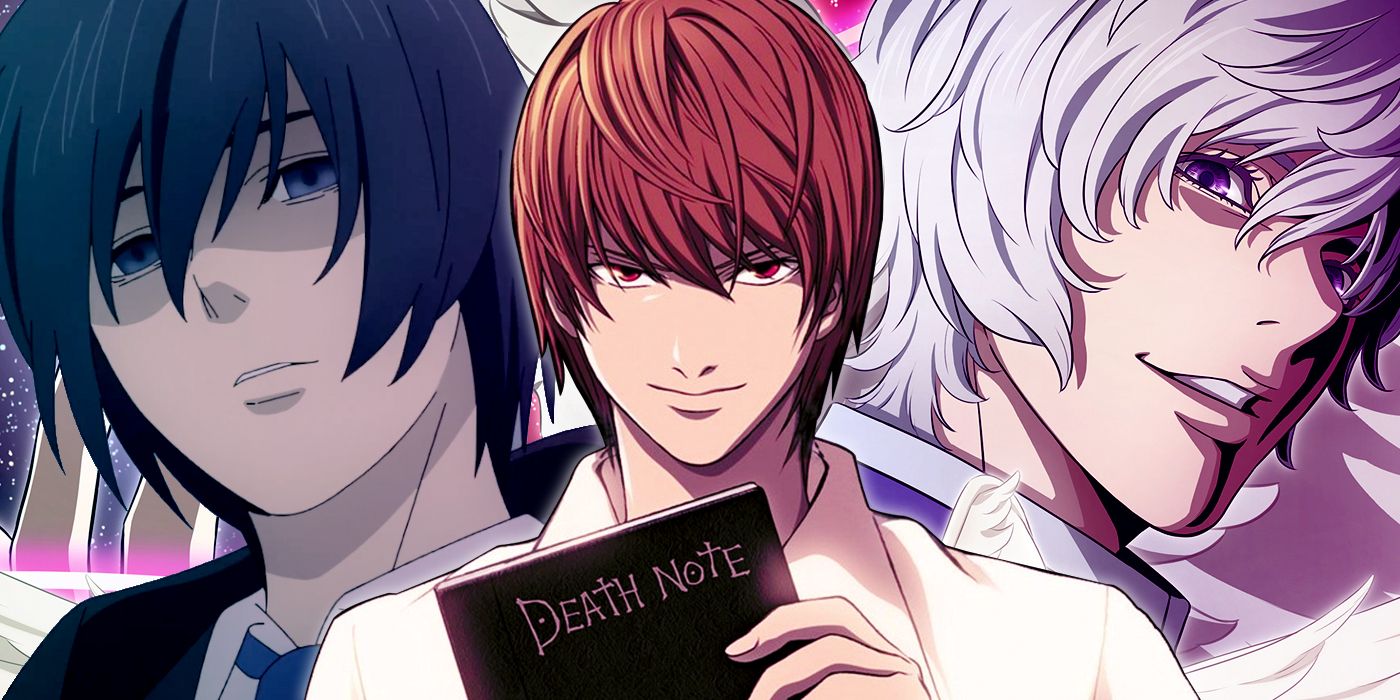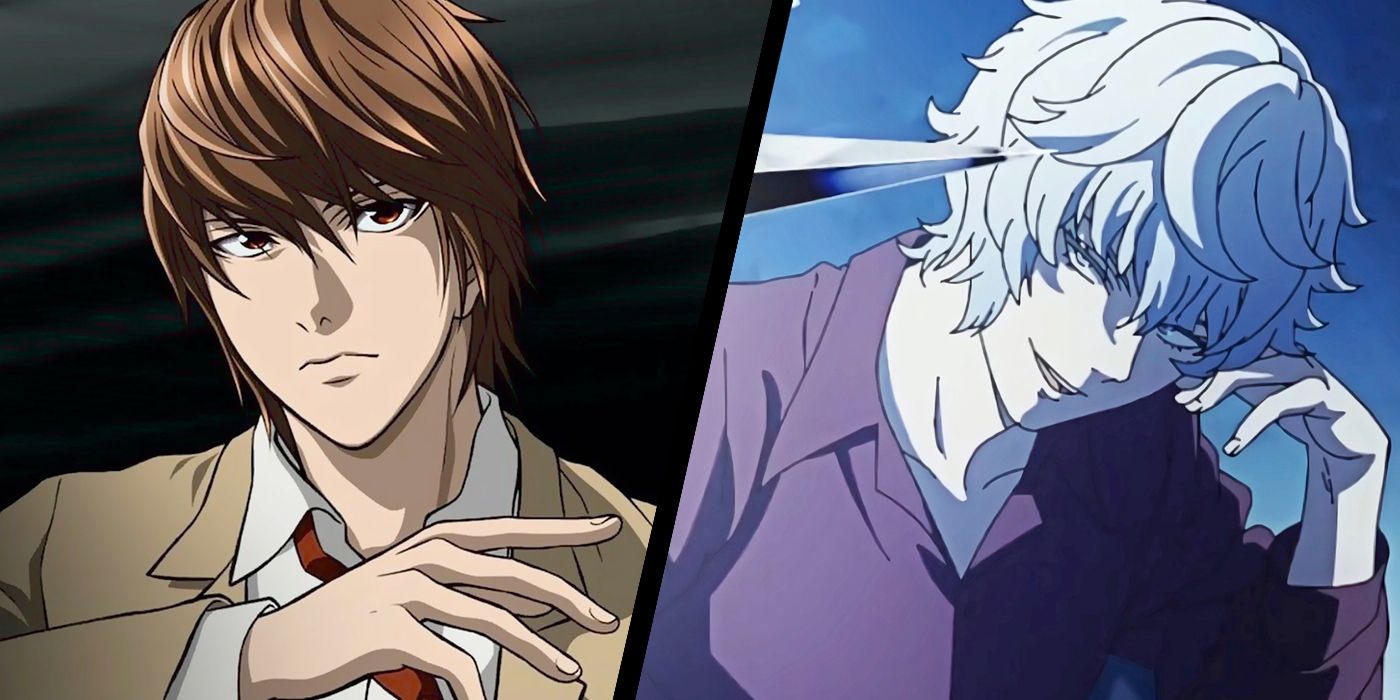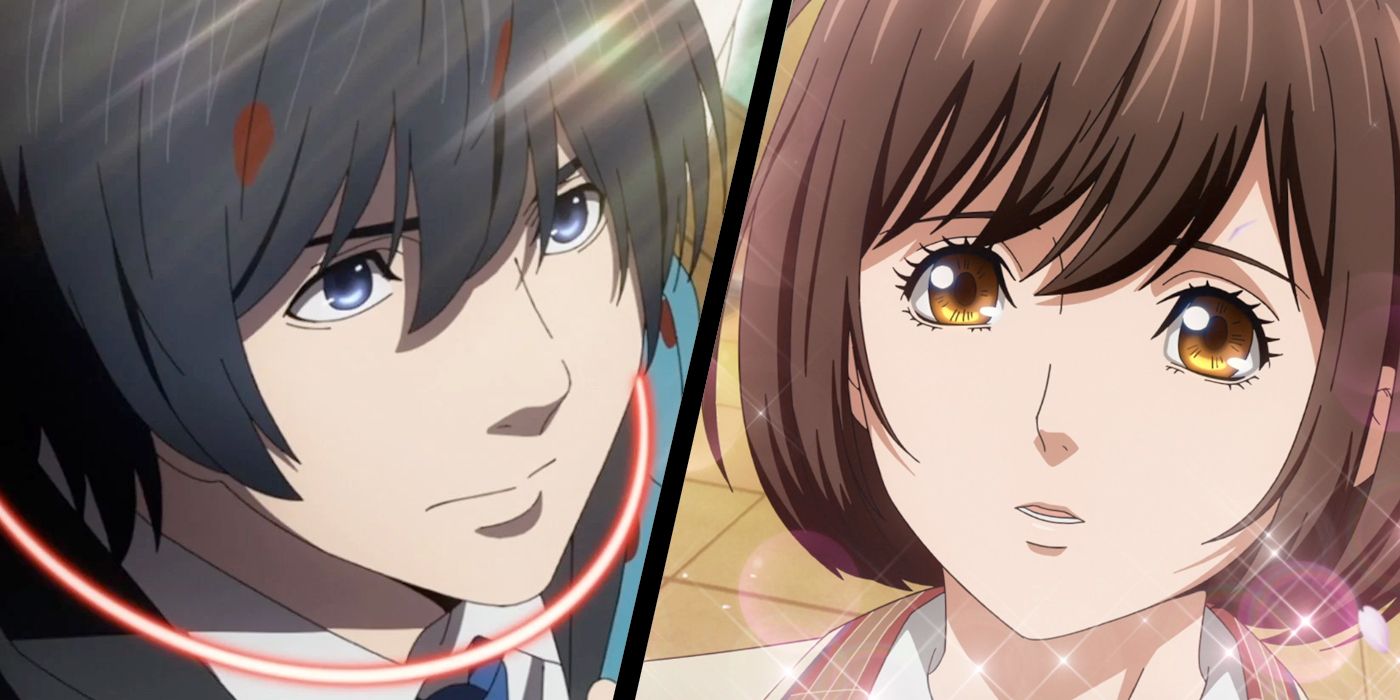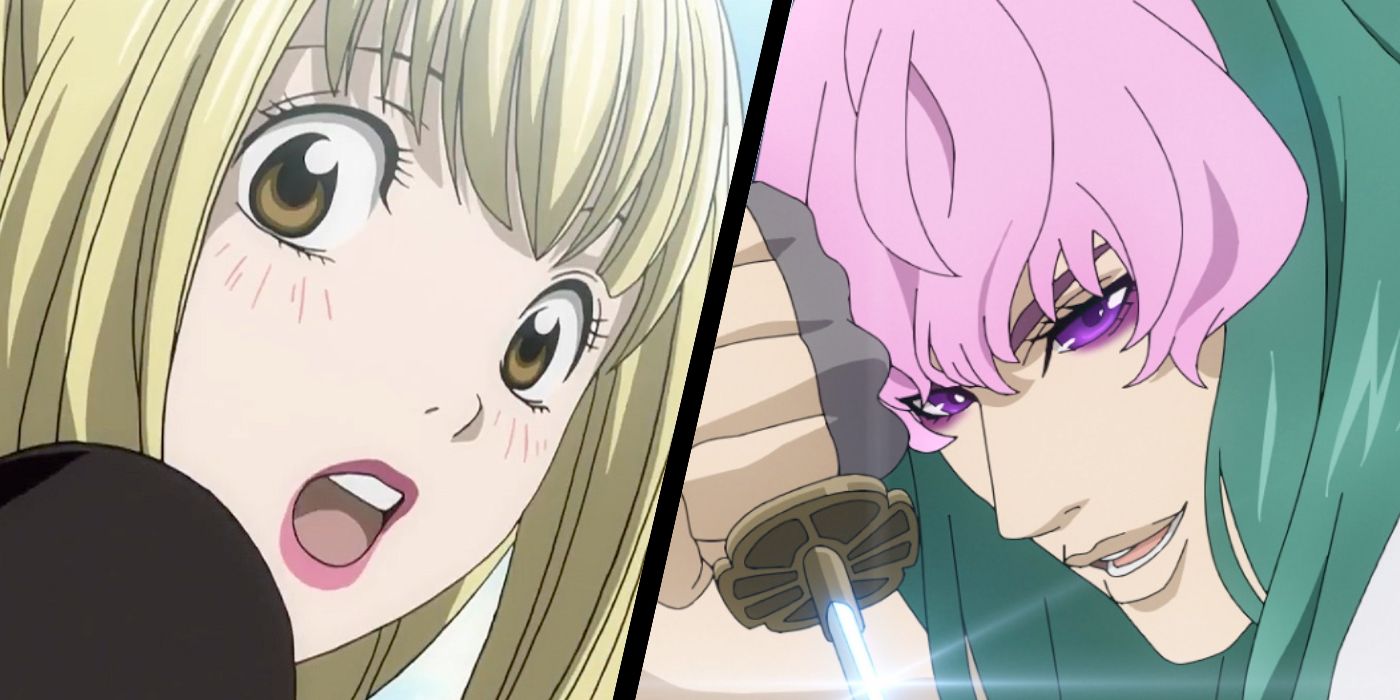WARNING: The following article contains spoilers for Platinum End, now streaming on Crunchyroll and Funimation, as well as discussion of suicide and self-harm.
Death Note and Platinum End, two of Tsugumi Ohba and Takeshi Obata’s popular works, explore the idea of ordinary human beings achieving godhood in some capacity. In Death Note, Light Yagami and Misa Amane are granted the powers of a shinigami (death god) with supernatural notebooks. Both individuals abuse the power of their death notes for achieving their own selfish goals. In Platinum End, 13 individuals are granted the powers of angels as part of a competition to become the next God. All but three candidates use their powers to obtain selfish desires.
At first, it seems as though Ohba and Obata are making a point about human beings' easy susceptibility to corruption the moment they obtain power. A closer examination of both Death Note and Platinum End, however, reveals both works are less about the dark influence of power and more focused on what it reveals about a person’s character. This makes sense when taking into account how the characters of both series tend to use their newly obtained powers differently, based on their personal values and desires.
Power Is Abused by Narcissists Like Light and Kanade
Narcissistic characters drive the plot of both Death Note and Platinum End. In Death Note, Light Yagami has the dual role of narcissistic protagonist and antagonist, while Kanade Uryu functions as the sole narcissistic antagonist of Platinum End. Both men explore the deadly consequences of pairing narcissistic personalities with unlimited power, even when their motivations appear noble at first.
In Death Note, Light is driven by a desire to cleanse the world of evil and uses a shinigami's notebook to mass murder criminals around the globe. He does so with no consideration for motivation or the subjectiveness of criminality, and appoints himself the "God of this new world." In Platinum End, Kanade is one of 13 God candidates who wants to take over the job of God for the sole purpose of resurrecting his deceased sister. Despite their difference in motivation, both are actually clones of each other as their methods of achieving their goals are manifestations of their narcissism.
One major hallmark of narcissism is a lack of empathy, which manifests in various ways by the two men. One way Light demonstrates his is through the indiscriminate way he murders criminals. When other people like the British detective L catch on to his schemes and come close to exposing him, Light starts murdering them as well to get them out of his way. In Kanade's case, it doesn't matter who the other God candidates are. He only cares about the fact that they're in the way of his God ascension and devises horrifying ways of murdering them. One of his victims includes a child, whom he used as bait to lure the other God candidates to where he needed them.
Related to a lack of empathy is the narcissist's tendency to use and dispose of people as needed. Light exploits the admirations of both Misa Amane and Teru Mikami to assist him in his goals, but doesn't care what happens to them and is even willing dispose of them once they stop being useful. Kanade similarly exploits Hajime Sokotani's admiration of him to assist him in eliminating his rivals, but also feels no obligation toward him. He is just as willing to dispose of Hajime once he's served his purpose -- or becomes a detriment to his goals.
Empaths Like Mirai and Saki Are Reluctant to Use Power
On the flip side of narcissists abusing power are empaths, who are also given access to unlimited power. Characterized by an ability to put themselves in others' shoes, empaths are able to recognize the damage unlimited power can cause when placed into the wrong hands. This theme is more strongly explored in Platinum End with protagonist Mirai Kakehashi, his childhood friend Saki Hanakago and their ally Nanato Mukaido.
In contrast with Death Note's protagonist, Mirai is an abused and depressed teen who attempts to end his own life. When his suicide attempt is averted by an angel's intervention and he's made a God candidate against his will, he is gifted with god-like powers. Mirai finds these abilities very dangerous for any human to possess and is especially terrified of the serious harm they can cause. Even with the major threat of Kanade Uryu and the danger he poses to his loved ones like Saki, Mirai is still reluctant to use his powers.
Saki herself is made a God candidate when she also attempts to end her own life out of remorse for having bullied Mirai, whose suicide attempt she witnessed. The first time she uses her god-like powers on him, she immediately regrets it -- not just because he is in love with her but also because she recognizes her abuse of power for what it is. Nanato is similarly made a God candidate when on the verge of dying from cancer. However, he only accepts an angel's offer as a way of prolonging his life so he can secure his family's future before he dies.
The defining trait Mirai, Saki and Nanato have in common is that none of them wants the immense power they were blessed with -- and they especially do not want to become the next God. They do, however, feel an obligation to protect their loved ones from harm, a goal that unites them against Kanade Uryu. Even though they know they have to stop Kanade from ascending to Godhood for the betterment of the world at large, they want to do so without killing him.
Power Is a Vehicle for Selfish Desires in Death Note & Platinum End
Both Death Note and Platinum End explore the question of what human beings would do if given the power to exercise their selfish desires with minimal to no consequences to themselves. In Death Note, this question is limited to "if given the chance to kill another human being, would you?" Additionally, it makes killing easy by being able to write a person's name in a notebook and specify the cause of death. If a receiver of a death note also accepts the eyes of a shinigami, they can see the name of the person they want to kill. These powers are easily exploited by Misa Amane who uses them to murder people she finds offensive and as a way of getting Light's attention, having decided she's fallen in love with him.
The question of selfish desire and power is explored more broadly in Platinum End, where God Candidates are able to control the actions of people for 33 days with use of a red arrow. At least two male God candidates use these powers to compensate for their shortcomings. One is Tonma Rodriguez, who uses his powers to make women have sex with him. The other is Hajime Sokotani, who similarly uses his powers to acquire wealth, physical beauty and sexual intimacy with women. The recurring theme between the two men is that in addition to bettering their own lives in a quick and easy way, they also have their physical needs met by other people without obtaining their consent.
In the end, both Death Note and Platinum End make very strong statements against any one person being worthy of godhood or god-like power. Regardless of a person's motivations, a person's character is what ultimately determines how power is used: a narcissist will abuse it, an empath will be scared to use it and a selfish person will use it to better themselves at others' expense.
For more information on the warning signs and prevention of suicide, click here. If you or someone you know is in emotional distress or considering suicide, call the National Suicide Prevention Lifeline at 1-800-273-TALK (8255). If you live outside the U.S., click here for a list of international hotlines.




